A car’s alternator supplies the electrical load (voltage) needed to power its electronics while the engine is running. When the engine is not running, the battery supplies the voltage required to power the electronics. If the alternator is not working correctly, it may fail to supply voltage consistently, causing the electrical components to work from a reduced power source. This can put pressure on the components and cause a misfire.
Although a problematic alternator is not a common cause of misfires, I have provided a detailed explanation of why this may occur in this article, along with how to detect signs of a malfunctioning alternator and accurately diagnose a faulty one.
What Is an Engine Misfire?
An engine misfire occurs when one or more cylinders fail to ignite the fuel and air mixture correctly or at the right time, causing the engine to run with at least one cylinder down. This can cause the engine to run poorly, shake, vibrate, or stall. Various issues can cause misfires, but most commonly, they are caused in some way by an electrical component. It is vital to address a misfire promptly, as it can cause damage to the engine.
Why Can a Bad Alternator Cause a Misfire?
Modern engines use many supporting electrical components to keep them operating correctly; there are a couple of ways an alternator causes a misfire. An alternator supplies a stable specified voltage consistently with the motor running. Because a bad alternator fails to supply the correct voltage levels required, these electrical components fail to operate correctly; this can cause limp home mode, the engine management light to illuminate, or just a simple misfire.
Here’s why: suppose the coil pack fails to operate correctly because of a reduced voltage problem caused by the alternator. In that case, the spark supplied by the coil pack to the plugs is insufficient to ignite fuel in all of the cylinders, which is essentially what a misfire is.
A coil pack not receiving a good electrical supply is the most common cause of an alternator-induced misfire.
What Are the Symptoms of a Bad Alternator?
Suppose you have a misfire, suspect the alternator is at fault, and now want to confirm the alternator is the problem; you need to look out for the other signs that confirm the alternator is the problem. The most commonly found symptoms of a bad alternator include:
Dim or Dimming Headlights
The headlights require a constant 12-volt supply to stay at their brightest. When you have a bad alternator, the voltage supplied to the headlights by the alternator will be irregular. The lights will only receive a fraction of the voltage, causing them to dim. You may also experience the voltage spiking, so the headlights may appear brighter for a split second.
To explain, if the alternator is supplying a 12-volt headlight with only 8 volts, it will result in dimmer lights. Providing the lights with over 12 volts and the bulbs will get brighter, blowing the bulb if it’s weak.
Radio Not Working
The radio will become temperamental without a consistent 12-volt supply from the alternator. You may experience low or no sound output from the speakers and dimmer lights on the radio display if the radio receives less than 12 volts. Again, this is because the radio requires a specific voltage level to keep it operating; in this case, and in most cars on the road, 12 volts are required.
Windshield Wipers Struggling
The windshield wipers are another item that relies on a 12-volt supply when operating. When using the wipers, the additional load on the alternator will reduce the speed and chances they will manage to clear the screen. They may work as expected for one or two cycles, but you will notice they start to struggle, and their movement will slow until they fail to operate halfway through clearing the windshield.
Difficulty Starting the Engine
The battery stores the electrical load required to start the car, but without a functioning alternator, no voltage is going back into the battery for it to store when the engine is running. Typically, a 12-volt car requires the battery to have between 11.4 and 12.4 volts to turn over, although some vehicles may start with less than 11.4 volts.
Please remember that a failed battery is not always a sign of a bad alternator, as batteries can fail on their own. If the alternator fails, it does not necessarily mean that the battery needs replacing. You can still jump or bump start the car to get it going, but you will eventually destroy a good battery without replacing the alternator.
Smoking Alternator
An alternator smoking is usually overheating; this isn’t always because it is overworking; it’s generally because a bearing inside the alternator has failed. An alternator overheating stops supplying the correct voltages required and then overworks till it fails.
Alternator bearings can dry out due to faults or aging. When dry bearings come into contact with the outer casing, friction is created, resulting in heat and smoke. Dry bearings also cause a lot of noise; you may hear a rumbling noise from the alternator when the engine is running.
Battery Light On
The illuminated battery light is a charging light, indicating that the alternator is not putting enough voltage back into the battery. People get confused and assume it means the battery is failing, but it is the alternator. It doesn’t always come on because sometimes the power supplied by the alternator is enough to fool the car into thinking the battery is getting enough power when it isn’t. But you can be sure there is an alternator issue when it does.
Can You Drive With a Bad Alternator?
You can drive with a bad alternator if the vehicle starts, especially during the daylight; the issue comes if you stall or turn the motor off. As soon as you turn the car off, the alternator may not have supplied enough voltage to the battery to restart it again.
The trick to driving with a bad alternator is to reduce electrical consumption as much as possible; so that means no heater, lights, radio, aircon, phone charger cables, or operating electric windows. That way, you have a chance that the alternator may just about put enough voltage back into the battery to restart it. If the alternator is too damaged, the car may stall even after jump-starting.
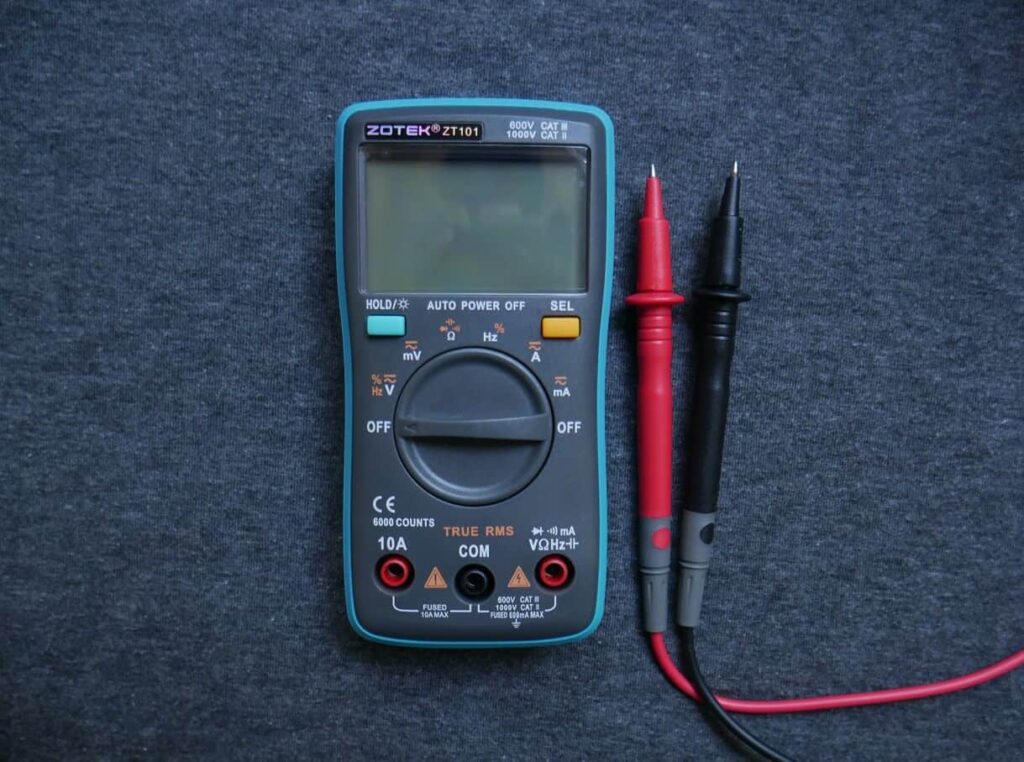
How Do You Check if a Bad Alternator Is Causing a Misfire?
Checking to see if the alternator is working is the first step to see if it is causing a misfire. Start by connecting a voltmeter to the battery with the engine running. The voltage displayed should be between 13.4 and 14.4 volts if the alternator is good. If the reading is inconsistent or below/above the expected range, the voltage spikes and drops rapidly, indicating a faulty alternator.
You can also check using a voltmeter if the voltage supplied to each component that could cause a misfire is sufficient to operate correctly, i.e., the coil pack. If it isn’t, then you have your answer. Still, it is a lot of time-consuming work to identify that the alternator is at fault, as it would be entirely academic when you know the alternator isn’t operating correctly anyway.
If It’s Not the Alternator, What Else Can Cause a Misfire?
Suppose you’ve checked the alternator, and it’s not at fault. You’ll now be questioning what can cause a misfire. Here is a short list of some of the components that can cause a misfire:
- Spark plugs
- Ignition coils
- Distributor cap and rotor
- Fuel injectors
- Fuel filter
- Fuel pump
- Camshaft
- Piston rings
- Valves
- Catalytic converter
- Sensors (such as oxygen sensor or mass airflow sensor)
- Engine control module (ECM)
Final Thoughts
As mentioned briefly in this article, a bad alternator can sometimes cause a misfire, although it is rare. Generally, a misfire is caused by other failed components rather than the alternator. However, since the alternator supplies the electricity needed to power these components, it may be the reason behind occasional misfires. To solve this problem, you need to replace the alternator. If you have a bad alternator, replacing it first will help determine whether there is another issue or if the alternator was the root cause of the problem.
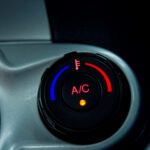

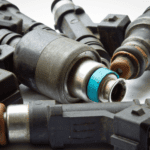

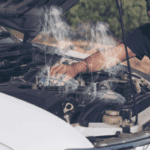

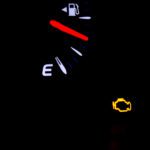
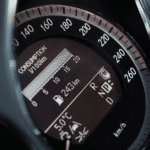
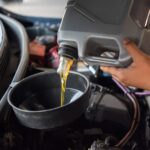

1 thought on “The Links Between a Bad Alternator and an Engine Misfire!”